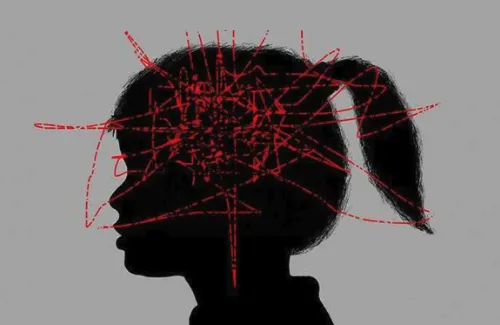What does your job pay?
Sara is our Salary Bot Extraordinaire
Search by title, company, city, and even state.
Sara has been trained with data from the united states department of labor, glassdoor, indeed, and linkedin. CoreTactic is not responsible for how this data is used. Always remember, AI can get it wrong.
MEET THE FOUNDER & CEO
Hey, I'm Nick!
I started CoreTactic to help clients transition careers and also start new businesses.
I was laid off in 2023 and never want that experience for anyone. So here we are. We can help you with:
Changing careers or simply finding a new job
Starting a new company
Sales and Marketing Automation with HighLevel


Is career coaching for you?
Career coaching helps professionals at every stage – whether you're new, established, or leading others. Coaching boosts earnings, helps prevent burnout, and supports smooth career changes.
Individual contributors
Thrive in your role with clear goals and essential skills. Coaching helps you ace interviews, build standout resumes, and navigate your career with confidence, and even to start a new business.
People managers
Enhance your leadership, excel in transitions, and recruit top talent. Coaching provides tools to lead effectively and plan for growth.
Senior leaders
Find work-life balance, explore new paths, and make smooth transitions. Coaching accelerates your growth and guides you through pivotal changes.
ARE YOU TRULY SATISFIED WITH YOUR CURRENT JOB?
Take the Free Assessment Now!


Learn about HighLevel, Sales and Marketing Automation
The CoreTactic Blog
Learn the secrets to the job search process, how to start successful businesses, and gain the professional experience to drive your career and business forward.

Trauma’s Impact on Brain Function and Behavior
Trauma, whether resulting from a single event or sustained over a period through experiences like abuse, prolonged exposure to stress, and bullying can cast a long-lasting shadow over an individual’s mental landscape. As research learn more about neural pathways, it is revealing startling insights into how trauma reshapes the brain’s structure and function, subsequently altering behavior and cognition. This exploration not only deepens our understanding of the human psyche but also paves the way for more effective treatments and interventions.
Understanding the Effects of Trauma on the Brain
Trauma can lead to profound structural and functional changes in the brain, particularly in areas associated with memory, emotion, and executive functioning. The hippocampus, a region critical for learning and memory, often shrinks in size after prolonged exposure to stress, which may result in difficulties in forming new memories or the retrieval of existing ones. Similarly, the amygdala, which plays a key role in processing emotions, can become overly reactive, potentially leading to heightened responses to stress and an increased risk of developing anxiety disorders. Neuroimaging studies have consistently demonstrated these alterations, providing a visual framework to understand the internal chaos experienced by those who have faced severe trauma.
The connection between trauma and altered brain chemistry is another area of focus. Stress hormones like cortisol are typically released during traumatic events, and their prolonged elevation can be toxic to brain cells, impairing cognitive functions and emotional regulation. This hormonal imbalance not only disrupts existing neural connections but also interferes with the formation of new ones. Furthermore, trauma can decrease the brain’s plasticity, limiting its ability to adapt to new situations or challenges, which reinforces a cycle of stress and dysfunction.
Moreover, the prefrontal cortex, which is involved in decision-making and social behavior, shows reduced activity following traumatic exposure. This reduction can lead to difficulties in decision-making processes, impulse control, and the ability to regulate emotions effectively. The diminished function of the prefrontal cortex often explains why individuals who have experienced trauma might struggle with tasks that require planning, judgment, and the management of social interactions.
How Trauma Influences Behavior and Cognition
Behaviorally, trauma survivors often exhibit a range of symptoms that can be perplexing and distressing. One of the most common is the presence of hypervigilance, a state of increased alertness that helps an individual prepare for potential threats but can be exhausting and anxiety-inducing. Sleep disturbances, such as nightmares and insomnia, are also frequent, disrupting normal sleep patterns and leading to chronic fatigue and decreased pain tolerance. On a broader scale, trauma can lead to the avoidance of certain places, people, or activities that remind the individual of their traumatic experiences, which can severely limit their ability to function in various aspects of life.
Cognitively, people who have experienced trauma may suffer from impaired attention, memory, and executive functioning. Difficulty concentrating or a tendency to be easily distracted can impair learning and affect performance in both academic and workplace settings. Memory issues, particularly with short-term memory, are common, and some individuals may experience dissociation—a feeling of detachment from reality—which helps them cope with immediate stress but can disrupt their engagement with the present.
Furthermore, trauma can profoundly affect an individual’s emotional and psychological health, leading to conditions such as post-traumatic stress disorder (PTSD), depression, and anxiety. These conditions can skew an individual’s cognitive appraisal of situations, leading to distorted thinking patterns like catastrophizing or black-and-white thinking. The resultant behaviors and cognitive biases not only reinforce the traumatic patterns but also complicate recovery and intervention efforts.
The intricate relationship between trauma, brain function, and behavior underlines the importance of addressing psychological injuries with as much urgency and seriousness as physical ones. Understanding the profound effects trauma can have on the brain and behavior is crucial in developing effective therapeutic strategies that can aid in the recovery and rehabilitation of trauma survivors. As research continues to uncover the depths of trauma’s impact, it brings hope and potential for more refined interventions that can help individuals rebuild their lives and achieve a sense of normalcy post-trauma.
An article from the National Library of Medicine was used as a reference for this post. The Article was called Trauma-Informed Care in Behavioral Health Services – Chapter 3 Understanding the Impact of Trauma.

Free White Paper
White Paper -
Mastering the Art of Job Hunting: Stop Hunting for a Needle in a Hay Stack
In today's dynamic and competitive job market, finding a new position requires more than just a polished resume and a list of references. It demands a strategic approach, thorough preparation, and the ability to present your best self throughout the entire process. This comprehensive white paper provides an in-depth guide to effective job hunting techniques, covering every stage from initial preparation to securing and following up on job offers.
While self-directed efforts are valuable, the journey to career success can be significantly enhanced by partnering with an executive coach. CoreTactic, a leader in professional coaching, offers invaluable support that can be a game-changer in your job search and career development.


Free White Paper
White Paper - Effective Business Ideation for Entrepreneurs
This white paper, presented by CoreTactic, a leading business and career coaching company, offers a comprehensive guide to business ideation for aspiring entrepreneurs. At CoreTactic, we specialize in helping entrepreneurs find fulfillment and achieve a state of "flow" with their business ideas, ensuring that their ventures align with both their personal passions and market demands.
Our expertise is rooted in a proven 90-step process that leaves no stone unturned in the journey from initial concept to successful launch. This meticulous approach, combined with our focus on personal fulfillment, sets CoreTactic apart in the field of entrepreneurial coaching.

Unlock Your CORE Potential Through Strategic TACTICs with CoreTactic
At CoreTactic, we coach the best and brightest on their journey towards meaningful and fulfilling careers and business goals. Transition your career, start a new business, find fulfillment, and get ahead with a professional coach.
Pages:

Office, Call and Text
(952) 452-1306
Hours:
Monday - Thursday 7am - 7pm CST
Friday 9am - 3pm CST
Saturday 9am - 3pm CST
© 2025 CoreTactic LLC - All Rights Reserved.



